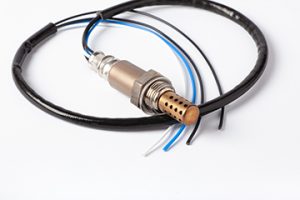Oxygen Sensor: What It Is and Why It Matters at Meineke in Lincolnton
When you’re driving along Main Street or heading toward Betty G. Ross Park, your vehicle depends on a precise little device called the oxygen sensor to keep your engine running smoothly. Since Lincolnton drivers deal with steady traffic, summer heat, and rolling Carolina backroads, your oxygen sensor must stay accurate to support clean combustion and strong performance. Because it measures the oxygen levels in your exhaust, it helps your engine burn fuel efficiently and reduces emissions.
At Meineke in Lincolnton, our ASE-certified technicians test, diagnose, and replace failing oxygen sensors to restore fuel efficiency and performance. Since a faulty sensor leads to rough idling, poor mileage, and check engine lights, early service keeps your engine healthy. So, in this post, you’ll learn what the oxygen sensor is, how it works, why it matters, how to maintain it, and when to visit Meineke in Lincolnton for expert care.
What the Oxygen Sensor Is and How It Works
Your oxygen sensor sits in your exhaust system, either before or after the catalytic converter. Since it monitors the amount of oxygen in the exhaust gases, it sends data to the engine control module. Because the computer uses this information to adjust the air–fuel mixture, your engine stays efficient and responsive. Therefore, when your oxygen sensor works correctly, your vehicle runs smoother whether you’re cruising through Lincolnton or merging onto Highway 321.
Why the Oxygen Sensor Is Important
A healthy oxygen sensor improves performance, efficiency, and emissions.
So, How to Maintain the Oxygen Sensor
A few simple habits help your oxygen sensor stay accurate longer:
-
Since dirty fuel affects combustion, use high-quality gasoline.
-
Because oil and coolant leaks damage sensors, repair leaks quickly.
-
As carbon buildup weakens readings, schedule periodic engine cleanings.
-
Since sensors wear out over time, replace them at manufacturer intervals.
-
Because early checks prevent damage, schedule diagnostics at Meineke in Lincolnton when performance drops.
When to See a Mechanic in Lincolnton
Visit Meineke in Lincolnton if you notice these oxygen sensor warning signs:
-
Because your check engine light turns on.
-
Since your fuel economy drops suddenly.
-
As your engine runs rough or stalls.
-
Because your exhaust smells strong or unusual.
-
Therefore, your vehicle fails an emissions test.

So, Call Meineke in Lincolnton Today for an Oxygen Sensor Inspection
Your oxygen sensor plays a key role in keeping your engine efficient, clean, and powerful. Since a failing sensor increases fuel use and causes performance issues, early inspection keeps your car running at its best. Because our ASE-certified team at Meineke in Lincolnton specializes in oxygen sensor testing and replacement, you always get dependable, expert results.
So, call Meineke in Lincolnton today for an oxygen sensor inspection — and enjoy smoother, more efficient North Carolina driving.

